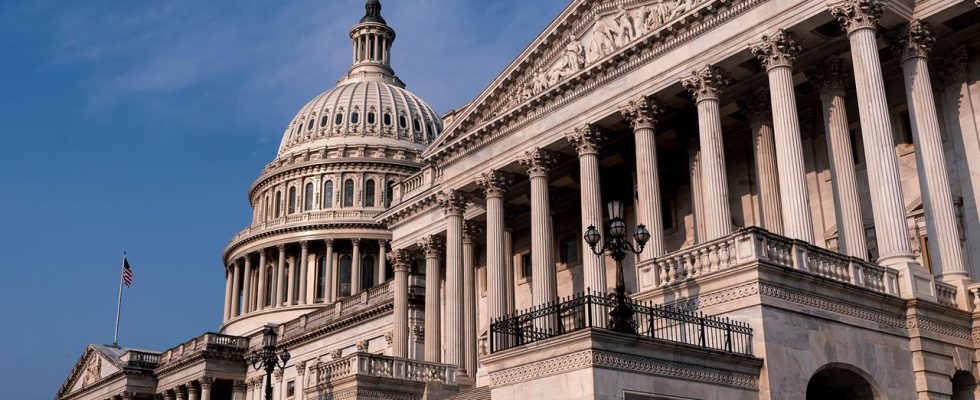After a tough struggle, the deal between Democrats and Republicans is probably in place. US President Biden and opposition leader McCarthy agreed to raise the debt ceiling to avert a default. Congress still has to approve it.
The White House and the Republican Party have reached an agreement in principle in the debt dispute. US President Joe Biden and opposition leader Kevin McCarthy agreed to raise the debt ceiling to avoid a US default, McCarthy confirmed.
“I spoke to the President recently on the phone. After months of wasting his time and refusing to negotiate, we have reached an agreement in principle worthy of the American people,” McCarthy tweeted.
Both houses of Congress — the Senate, controlled by Biden’s Democrats, and the House of Representatives, controlled by Republicans — have yet to approve the deal.
Biden: Vote in Congress as soon as possible
Biden set the pace in this regard: “I urge both chambers to pass the agreement immediately.” According to the White House, he spoke of an important step forward that will reduce spending while protecting vital programs for working people and strengthening the economy for all.
In addition, the agreement protects the most important parts of his agenda. “The agreement represents a compromise, which means that not everyone gets what they want.” Over the next few days, the negotiating teams would finalize the text of the law. The agreement will be forwarded to the House of Representatives and Senate.
Hardly any details on the content
The compromise was reached after tough negotiations and another phone call between Biden and McCarthy on Saturday. McCarthy told reporters that he would speak with Biden again later today and oversee the final wording of the bill. The House of Representatives should vote on Wednesday, he announced.
Although the final details of the deal remained unclear, McCarthy said the Democrats had agreed to “historic spending cuts” and that the text contained no new taxes or government programs.
The Republicans had wanted to urge Biden to cut back on social issues, for example, in exchange for an increase in the debt limit. McCarthy, for example, called for people who receive certain social benefits to have a job in return. Biden’s Democrats don’t want that. Instead, they wanted to close “tax loopholes” – specifically: tax the rich more heavily. Republicans are opposed to this.
insolvency from June 5th
The negotiations took place under great time pressure. Without an agreement, the US would have faced default from June 5, with potentially devastating economic and financial consequences far beyond the country. Treasury Secretary Janet Yellen repeated warnings on Friday.
Majorities in chambers not certain
But even with an agreement between the White House and McCarthy, the debt crisis is not yet completely off the table: There could be resistance to the compromise in both parties, which is why majorities in both chambers of Congress are by no means certain.
The United States had already reached the statutory debt limit of just under $31.4 trillion in January. Since then, the US government has been using so-called extraordinary measures to prevent insolvency, but the options for doing so are soon exhausted.
The US debt limit has been suspended or raised dozens of times by presidents of both parties over the past few decades – and with bipartisan majorities. This year, however, the Republicans are flexing their muscles with their new majority in the House of Representatives won in the midterm elections in the fall of 2022.

